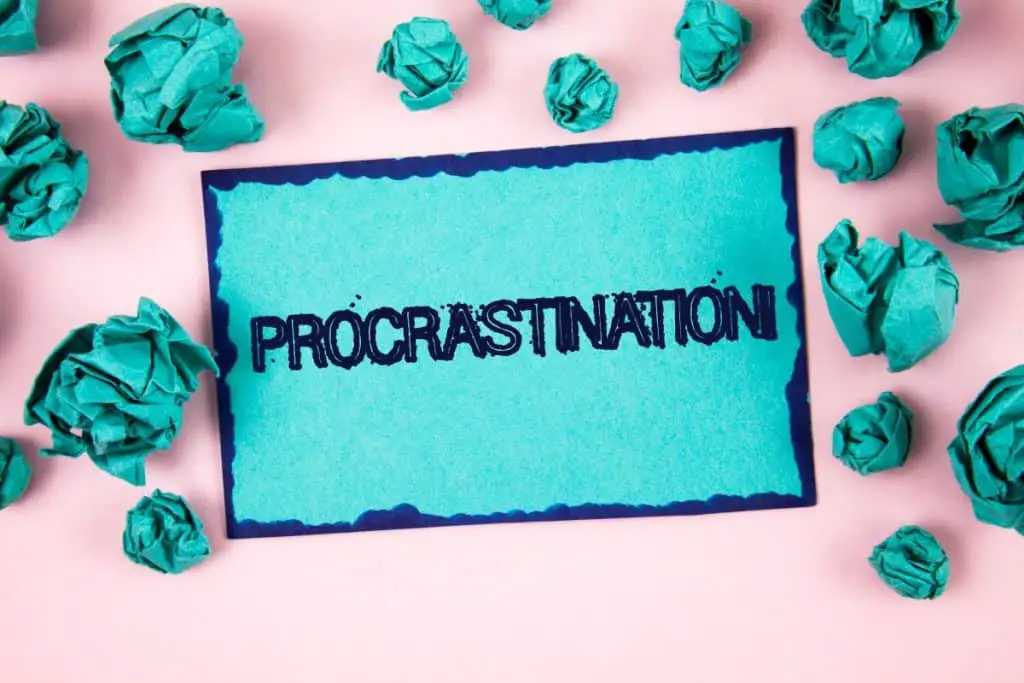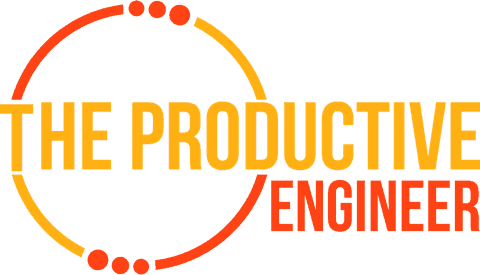What Should You NOT Do Before An Exam?
I have taken many exams during my scholastic career. As part of my preparation for the exams, I would often wonder if there was anything else I could be doing to better prepare. Typically, I would add more reading or review time to supplement what I was already doing to make myself feel more ready for the exam. However, in thinking about it now, there were likely things I was doing that I should NOT have been doing. There were likely things I was doing that were actually hindering my preparation that I didn’t even know was doing so. Once I realized this, I decided to do an inventory of my exam preparation process to see what, if anything, was potentially holding me back from performing my best on the exam.
So what did I find? I found several things I do that actually have a negative impact on my ability to do my best on the exams I was taking. Specifically, here is a list of things that you should NOT do before an exam:
- Putting off studying until the last minute
- Over-cramming the night before the exam
- Over-caffeinating the night before the exam
- Not taking adequate notes during lectures
- Studying by myself
- Walking in blind to the exam
- Go to sleep at different, inconsistent times every night
- Eat lots of sugary, greasy junk food a day or two before the exam
- Under-hydrating
If you are looking for a list of things you SHOULD DO to prepare for an exam, check out our article that contains twenty-five performance-boosting study tips at the link below:
25 Study Tips That Will Improve Your Academic Performance
Before we get started, if you are looking to improve your writing, you should really check out Grammarly. Grammarly is a godsend for those who have to write term papers, dissertations, or anything else you write that needs to be grammatically correct. Grammarly doesn’t just check grammar either. It helps you to write clearly and effectively by checking for overused words and unclear phrases. Best of all, Grammarly has a great free tier to get started with. For more information on Grammarly, click the link below:
Grammarly – Great Writing, Simplified
If you are looking for the best study tools out there, you should read our article on the best study tools to enhance your studying at the link below:
The Ultimate Study Tools You Must Use to Succeed!
Putting Off Studying Until the Last Minute
This one was the first one I found based on my own review of my own study habits. Typically in college, there are only one or two exams per semester. I, like many people, tend to put off the important for the immediate. It is easy to say to yourself “the exam is 3 months away, I have plenty of time so I can put off studying until later.” This line of thinking created real problems for me on a couple of levels. First, it created a mental construct that was detrimental to exam preparation and had some very real side effects. One was that I tended to not focus as much during the lectures as I should of. I had already told myself the exam was far away and I would get “in the zone” closer to the exam time.” This is never really the case.

For one thing, the exams are, typically, derived from the very lecture content I was only half paying attention to. So I was missing the precious content I needed. Also, the idea of rapid preparation is a myth. The best way to prepare is a little bit at a time. Having a tight timeframe to study leaves very little room for error. Missing some keynotes the night before the exam? Not good. Too late to fix it. This leads to my second finding.
Over-cramming the night before the exam
Everybody does this or at least has done it at some point. Trying to shove a half or whole semester of learning into one evening is a recipe for disaster. Everyone knows this yet we all still do it. The lack of an imminent deadline prior to the actual exam really hurts us here as it makes it very easy to procrastinate and put ourselves behind the proverbial eight-ball. Cramming simply doesn’t work, especially if the exam is one that is inclusive of all the content for the semester. There is simply too much information to attempt to cram into your brain at the last moment. It simply isn’t feasible to expect to retain it all.
This reality is exponentially more apparent when preparing for exams that require deep knowledge of a given subject including complex inter-relationships between concepts that can only be truly grasped via exposure and contemplation of the content over time. The end result is a sub-standard performance on both the exam and the course in general.

So what can we do to fight this tendency to cram? The answer is remarkably simple but much harder to implement: Spread out your preparation across the semester in bite-sized chunks. This is much easier said than done as our (or at least my) natural tendency to defer things we don’t really want to do right now.
The solution is to create a study schedule and stick to it. Schedule your time to review the concepts you just learned. This has two key benefits:
- You will review the content while it’s still fresh in your head
- Knowing you have to review the content will help you to focus more intently during the lecture to ensure you fully understand what is being discussed.
Over-caffeinating the Night Before the Exam
This one is a byproduct of trying to cram the night before the exam. You start getting tired as the night drags on and you need that jolt of energy to push through. But one cup of coffee or soda becomes two then three and before you know it, you are over-caffeinated and can’t get any sleep. Caffeine, when used properly, can actually aid you in studying. I actually wrote a blog post on this very topic which you can find at this link.

One of the most important things you can do before your exam is to get a good night of sleep. Overdoing it with caffeine will likely lead to a poor night’s sleep. It is actually better to pace yourself throughout the day and lay off the caffeine after a certain hour. Take the time to get at least 7 hours of good sleep the night before your exam. The last thing you want is to walk into your exam groggy with your mind in a fog.
Not taking Adequate Notes During Lectures
This one might seem like it doesn’t apply things not to do before an exam but it actually does. The biggest piece of study materials you will gather throughout the semester are likely the notes you take during class. It follows that, at least in part, the quality of your exam preparation will be proportionate to the quality and completeness of your notes. If you don’t have a solid process for taking and reviewing notes, your likelihood of having success on the exam goes down significantly.
So how do you ensure that you are taking good notes and reviewing them effectively and consistently? The answer is to create a note-taking and review system. A good note-taking system will provide you with a consistent structure and schema for your notes. Consistency is essential. There is a saying that I try to use in my life – “Be consistently good, not occasionally great.” While I personally fluctuate on my ability to consistently put this one into practice, it is a good guidepost that underscores the fact that consistent actions yield the best results.

So what note-taking system should you use? The answer is the one that works best for you. For me, I find that the Cornell Note-taking System works best for me. It helps to trigger my brain to contemplate the content both as I jot my notes down as well as when I review it later. I wrote a blog post on the Cornell Note-taking System and how it can help improve the studying process. You can find that blog post here.
Studying By Myself
I realize that you may disagree with me on this one. Some people do like to work by themselves. I actually count myself as one of those people. So why do I believe that studying by yourself is not ideal? Because, in many cases, there is intrinsic value in collaboration and interaction with others in your class. Hearing new conceptual models of the data you need to learn from others can offer insights and connections you may not come up with on your own. Most college-level courses require internalizing the content finding the inter-relationships between various theories and concepts. Some concepts and relationships may be harder to find on your own. A good study group can help foster provocative discussion and debate that can lead to new insights.

Another benefit of study groups is that you have peers that can help fill in the blanks in your notes. No matter how good you may be at note-taking, you will at some point miss a point or nuance that the professor makes that one of your peers was able to capture.
Walking In Blind to the Exam
What does this one mean? Part of doing well on an exam is understanding how the professor constructs their exams. What type of questions does the professor tend to use? Multiple choice, essay, true/false? To be clear, this is not saying to try to get a copy of the test. That would be cheating and is clearly wrong. Instead, try to find someone who already took the course with the professor. Treat them to a coffee and ask them what they remember about how the professor structured the exams. Once you have this information, you can actually create your own questions based on your notes using the test structures your professor likes to use.
Why is this important? I mean, out of all the things we have talked about in the blog post, it seems the most touchy-feely and abstract. However, structuring part of your study process on the test process itself helps you to gain confidence. Having an idea of what to expect helps remove uncertainty and allows you some level of familiarity with what to expect on the exam.
Go to Sleep at Different, Inconsistent Times Every Night
As I mentioned earlier in this blog post, getting a good night’s sleep the night before the exam is absolutely essential. If your body is used to going to bed at 2 am and you have your exam first thing in the morning, your body likely won’t be ready to go to bed early enough to ensure adequate rest. College life can make it difficult to maintain a consistent sleep schedule but, if you can pull it off, you will reap some benefits.

But what if you can’t maintain a consistent sleep schedule? There are still some things you can do to optimize your ability to sleep. First, as mentioned earlier, refrain from consuming caffeine or sugar in the evening. You definitely don’t want to be highly caffeinated or on a sugar rush prior to bedtime. Reading fiction before bed can also help as it releases your mind from all of your todos and worries and let’s your mind relax.
| Sleep Tip | Why it works? |
| Reading Fiction | Distracts your mind from day to day worries |
| Keep Room Cool | Cool rooms have been shown to help facilitate sleep |
| Avoid Caffeine And Sugar | Caffeine and sugar impact your ability to wind down |
| Avoid Blue Light | Helps keep your circadian rhythms at their proper levels |
Eat lots of sugary, greasy junk food a day or two before the exam
You really want to watch your diet during exam week. You want your body and mind at their peak state in order to function at it’s best on exam day. Fast food filled with sugar, grease and fat will leave you feeling lethargic and tired. It is essential that you do your best to eat green vegetables and other foods that can help nourish your body. You want to have your body alert, energized and ready to tackle exam prep and, of course, the exam itself.
Enclosed below is a table with some foods that can help your mind be in optimal condition both during exam preparation and exam day (Source):
| Food | Benefit to Mind |
| Eggs | Eggs contain Choline which has been linked to better memory function. |
| Pumpkin Seeds | Pumpkin Seeds contain minerals like: magnesium, zinc, copper and iron. |
| Broccoli | Broccoli is high in vitamin K which helps form brain-friendly fats |
| Fish | Many types of fish are rich in Omega 3 fatty acids, which help build brain and nerve cells in the body. |
| Blueberries | Rich in antioxidants and provide anti-inflammatory benefits |
| Coffee | Coffee (in moderation) provides both anti-oxidant and caffeine. Just be careful not to overdo it with the caffeine 🙂 |
| Dark Chocolate | Contains flavonoids which help the brain with memory and learning |
| Oranges | Vitamin C as an anti-oxidant provider |
| Green Tea | If you are not a coffee drinker, Green Tea may do the trick plus it provides an amino acid that has been shown to increase brain activity |
| Nuts | Nuts contain vitamin E which helps stave off mental decline |
Under-Hydrating
By now, we all now the myriad of benefits we get when we consume water consistently. Being even a little dehydrated can create an environment where you lose cognitive performance (Source). Drinking water consistently throughout the day will keep you hydrated and help you body flush out any toxins. Water also can help you with your sleep as well as your mood. Additionally, water provides benefits to both concentration and memory, two things that are critically important to both exam preparation and actually taking the exam.

So now that we have covered the importance of drinking water, how much should you drink per day. While the specific amount will vary for each person, the general rule is that you should drink eight – eight ounce servings of water everyday. This number sounds huge because, well, it is. However, there is a way to ensure you get that amount in everyday – get yourself a portable water bottle and carry it with you everyday. I personally like Hydro Flask water bottles (affiliate link) as they really are durable and keep the water cold for quite awhile. Simply fill it up in the morning before you head out for the day. This will provide you two key benefits: increased water consumption and likely decreased consumption of sugary drinks. A true win-win.
Want More Tips and Tricks? Subscribe to our Newsletter!
If you haven’t already subscribed, please subscribe to The Productive Engineer newsletter. It is filled with tips and tricks on how to get the most out of the productivity apps you use every day. We hate spam as much as you do and promise only to send you stuff we think will help you get things done.
Check Out Our YouTube Channel!
We have a YouTube channel now and we are working hard to fill it with tips, tricks, how-tos, and tutorials. Click the link below to check it out!
Check out our Resources page
Check out our resources page for the products and services we use every day to get things done or make our lives a little easier at the link below:








